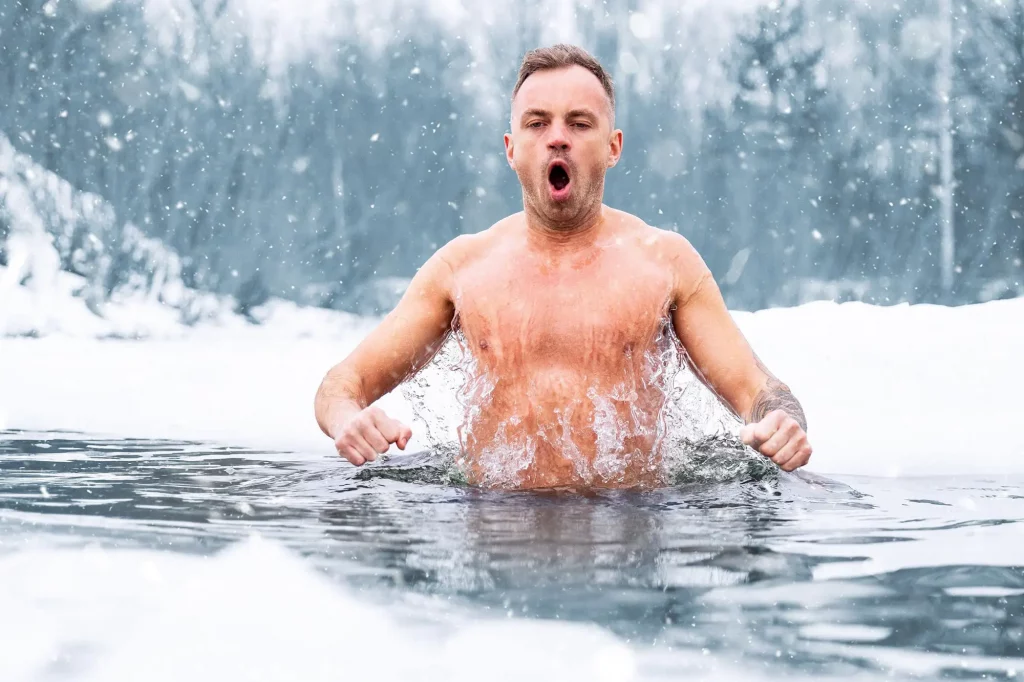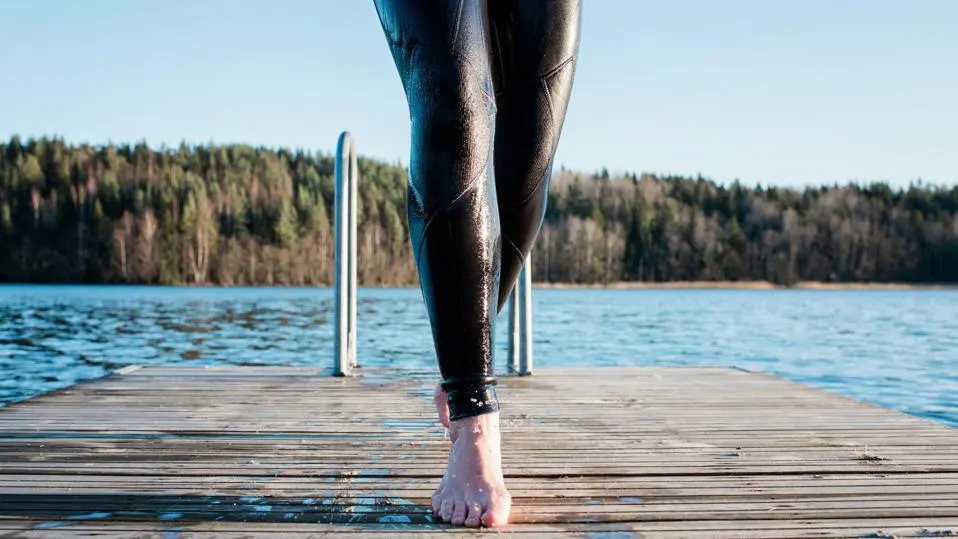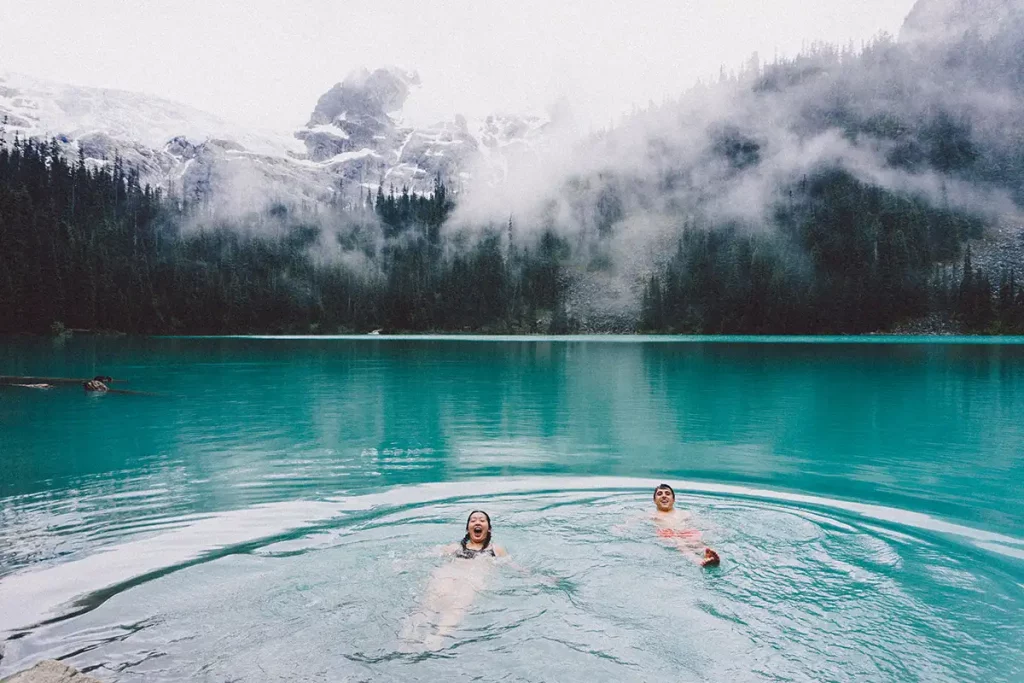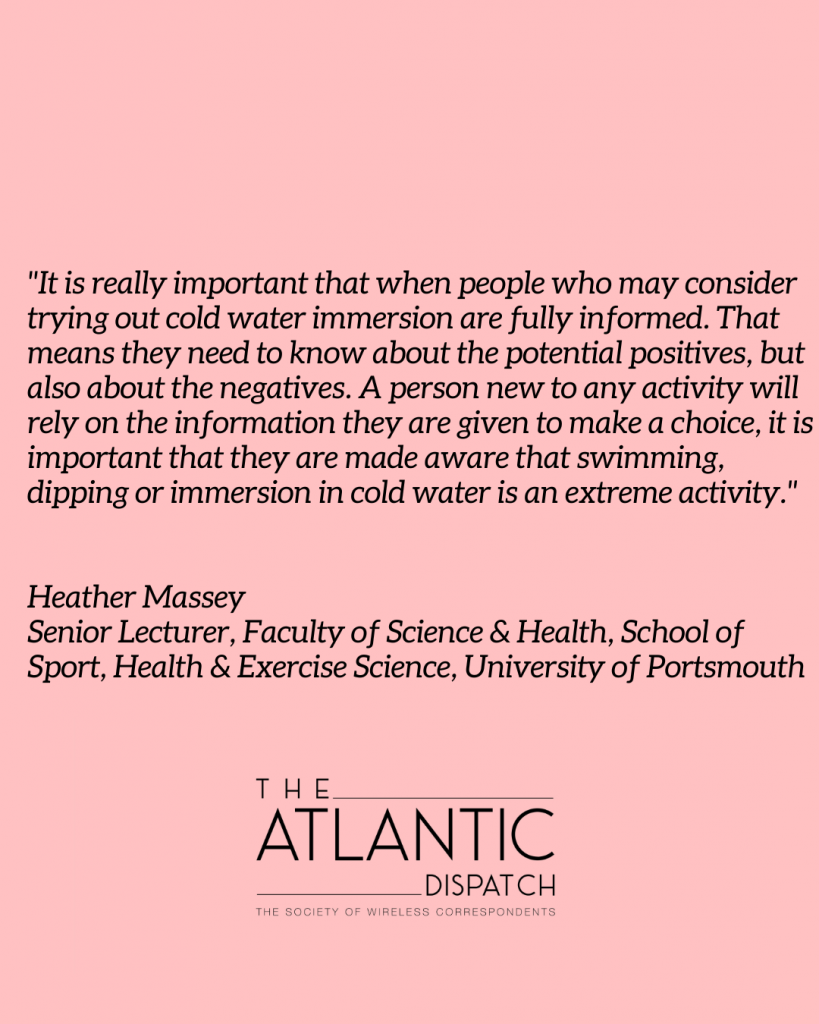Summer is at last upon us. Our beautiful stranger the sun waves hello to like an old friend that has been gone far too long. At long last many of us can once again begin to explore the outdoors without fear of frostbite. There are, however, amongst us, intrepid adventurers, who come rain or shine are out in the elements showing no regard for the weather or the prospect of frostbite. Now, they aren’t just hiking or cycling, but immersing themselves deep into the depths of cold water.
Gone it would seem are the days of visiting the local leisure centre for a nice relaxing swim. Forget that. Instead, let’s go to a lake in the middle of nowhere and take part in some cold water immersion.
Cold water therapy, as it has come to be known, can take the form of outdoor swimming – in lakes, rivers or the ocean – cold showers or even ice baths. It has traditionally been used by sportspeople as a way to reduce muscle soreness and speed up recovery time – with people typically spending about ten minutes after exercise in cold water that’s usually 10-15°C. It is a practice that in recent times has spread into popular culture and society. We are seeing cold water therapy being used to help treat symptoms of depression, pain and migraine. Indeed, there are many accounts of how cold water therapy has changed lives, cured broken hearts and helped people during difficult times.
Claims for the health benefits of cold water immersion actually date back centuries and were typically used for therapeutic and relaxation purposes in ancient Greece and were promoted by Roman physician Claudius Galen as a treatment for fever. It is also believed that Thomas Jefferson used a cold foot bath every morning for six decades to ‘maintain his good health.’
Perhaps because of the rise of social media, a new generation is being introduced to the world of cold water immersion. It seems now more than ever that an influx of people are desperate to experience the many benefits of cold water immersion. Individuals like Win Hof who swear by cold water immersion have also certainly contributed to its surge in popularity.
How much do we really know about cold water immersion though, and its apparent benefits? Is it a miracle cure for depression, or is it simply nature and popular culture’s placebo effect? And how safe is it? To find out more, The Atlantic Dispatch sat down with Heather Massey, Senior Lecturer, Faculty of Science and Health, School of Sport, Health and Exercise Science, University of Portsmouth.

It seems that there has been such a rise in the interest of ‘cold water therapy’ over the past couple of years, what do you put this down to?
Massey: There has been a general rise in interest in being outdoors since the onset of the pandemic when indoor pools shut but outdoor swimming was becoming more popular long before then. I am not sure there was a single factor, but social media and how it can connect people and support the development of informal groups has helped, as well as mainstream media which has influenced a number of people to try it out.
How important is it that people are educated correctly on cold water therapy? Many marketers and ‘social media experts’ have jumped on the cold water therapy bandwagon and are keen to point out how great it can be. But how important is it that the media, marketers and social media commentators promote it responsibly?
Massey: It is really important that people who may consider trying out cold water immersion are fully informed. That means they need to know about the potential positives, but also about the negatives. A person new to any activity will rely on the information they are given to make a choice. It is important that they are made aware that swimming, dipping or immersion in cold water is an extreme activity. They need to be made aware of the hazards and risks, and how the practitioner may minimise or mitigate those risks. Outdoor swimming is still an acquired taste and not to everyones liking, and we should present all the information to them.

How much do you think the positive effects of cold water therapy are down to a potential ‘placebo effect?’
Massey: We just don’t know. It could be a range of factors from the changes which happen to our physiology when immersed in cold water, to the psychology of being with like-minded groups, to the challenge, right through to being with the people. But certainly, we can’t rule out a placebo effect.

It’s surprising how far back experimenting with cold water immersion goes back to. So in many respects it’s not what you would describe as a fad. Why do you think that there has been such a long-time curiosity about experimenting with cold water?
Massey: It isn’t a new phenomenon, but certainly it has had peaks and troughs in popularity, I think the interest has increased because of the rise in health problems and possibly the idea that some people want to find alternatives to taking medications. I think we now have better technologies and research methods to look at the activity from a variety of viewpoints.
What advice would you give to anybody looking to try cold water therapy?
Massey: If people want to try cold water therapy, I would advise them to read the short article we wrote about minimising the risks. Find out if they are medically fit first and join a local group or person who knows the local hazards and what will happen when they first get in the water. Start when the water is at its warmest in summer and continue from there, and get into the water slowly and stay in for a short period of time, perhaps 5-10 mins during the first few immersions.

With thanks to Heather Massey, Senior Lecturer, Faculty of Science & Health, School of Sport, Health & Exercise Science, University of Portsmouth
